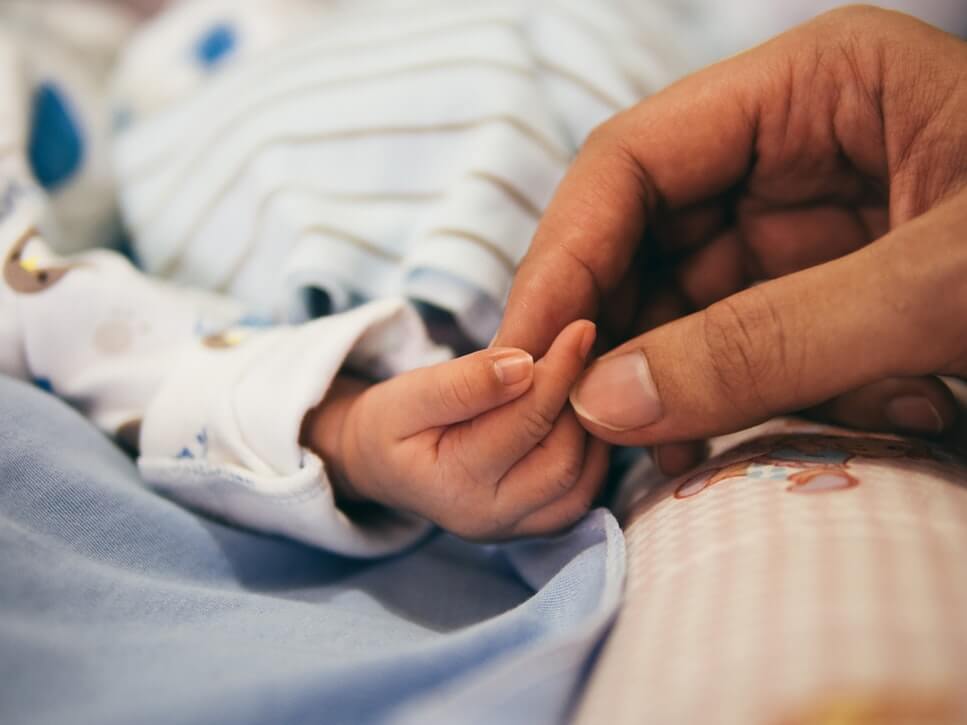You have been anticipating and dreaming about this day since the plus sign appeared on the pregnancy test. You did your research and read all the books. You tactfully planned everything that you wanted and thought was best for you and your baby in preparation for this day. You wrote out a birth plan and shared it with your provider. Then the day finally comes. The day you are going to bring your baby into the world. However, things did not go as you imagined they would and instead your entire world is turned upside down. This was not what you had planned for. In fact, nothing seems to have gone as you had hoped. Now, you are left replaying the day over and over again in your head wondering what went wrong. This is birth trauma.
According to PATTCh (Prevention and Treatment of Traumatic Child Birth, 2019) between 25 and 34 percent of women report that their child birthing experience was traumatic. Birth trauma is defined as when the mother or child’s life is perceived to be in danger. Birth trauma looks different for each and every person. Some women report birth trauma from a vaginal delivery turned c-section, unexpected medical interventions, excessive bleeding and hemorrhage, other medical emergencies, severe pain, or lack of communication with providers.
Some signs that you may have experienced birth trauma are:
- Frequent intrusive thoughts related to your birth that may cause overwhelming physical distress such as sweating or nausea
- Replaying events of the day in your mind, and feeling as if you are reliving them
- Nightmares
- Avoidance of anything that reminds you of your birthing experience
- Anger outbursts
- Difficulty caring for or bonding with your newborn
If you are reading this and this sounds like you, know that you are not alone and that there is help available. Here are some tips to help you cope when your birth didn’t go as planned.
- Process your birthing experience with your partner – Did you know that birth trauma not only impacts the person who gave birth, but it can also impact your partner as well? Talking about your birth with your partner can help you to fill in any missing gaps that you forgot during the experience, which can further processing the trauma. Furthermore, it can create a bond between you and your partner over this shared experience that you overcame together. If you did not have a birth partner present, talking to a trusted friend or family member can also help.
- Journal about your experience – Talking about your experience with someone that you trust is great, but perhaps there are thoughts about what happened that you don’t feel comfortable sharing out loud. Try journaling about your experience. This can include creating a list of disappointments, things you are thankful for, and emotions you felt. Journal entries can just include bits of information as opposed to well thought out paragraphs.
- Allow yourself time to heal – Healing, both physically and emotionally, takes time. Be gentle with yourself. The experience of child birth is life changing, even without the added trauma that you experienced. Work on letting go of perfectionism with things such as house work. Spend time focusing on your bond with your baby. This can mean lazy days of accomplishing nothing but cuddling your baby on the couch, and that is totally ok!
- Skin to Skin contact with your baby – Place your child on your chest while neither of you are wearing a top. This direct skin to skin contact between you and your baby has great benefits for mother and child! Skin to skin contact is a way for you to take a deep breath, slow down, and connect on a physical and emotional level with your baby. This can be healing for all.
- Support Groups – it is important for all new mothers to find their tribe. As a mom who has experienced a birth trauma, it may be hard for you to feel connected to other moms that you know. Perhaps it feels that their delivery was quick and painless, making you feel that they can not understand your emotional struggles at all. There are support groups for moms who have experienced birth traumas. Check with your local hospital to see if they have one available, and if they don’t they may be able to connect you with one nearby. If you are located in New Jersey, the Bloom Foundation for Maternal Wellness at Monmouth Medical Center has some wonderful support groups to ease the adjustment to motherhood while coping with a traumatic birth.
The effects of experiencing a traumatic birth are real, typically unanticipated, and frequently misunderstood. In fact, it’s thought that up to 30% of women with birth trauma experience symptoms of Posttraumatic Stress Disorder. Struggling with this life changing, and at times life threatening experience does not make you a bad mother. Make a connection with your partner, family or friends who understand. Find your tribe of mothers who get what you are going though. If you continue to suffer, seeking out a professional experienced in postpartum PTSD can help you be the mother you imagined for your child.
Learn more about our Adult Therapy Services
Contact us for a free phone consultation.





2 thoughts on “How To Cope When Your Birth Didn’t Go as Planned”
Comments are closed.